Blog (446 found)
Flurry of Rumor and Counter Rumor Regarding Repatriation is Detrimental to Refugees
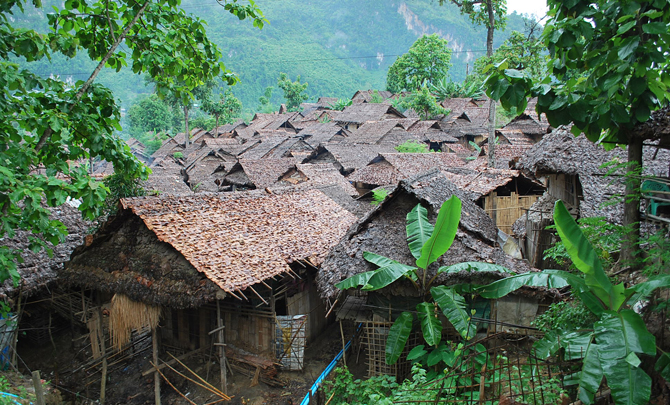 A week ago, rumors began doing the rounds that the Thai military plans to repatriate the 130,000 or so displaced persons from Burma living in nine camps in Thailand along the length of the Burma-Thailand border in the relatively immediate future. The rumors started when General Prayuth Chan-o-cha, Head of the National Council for Peace and Order (NCPO), mentioned that the refugee issue had been discussed with Senior General Min Aung Hlaing, Commander-in-Chief of the Burma Army. On 14 July, the Bangkok Post then quoted an unnamed Thai military source saying that working teams have sorted 130,000 refugees into three groups as part of preparations to send them home, a process expected to take around a year or more. A Burma Border Guard Force officer also told Mizzima on 15 July that armed ethnic groups in Karen State would allegedly cooperate in the resettlement of refugees on their return home.
A week ago, rumors began doing the rounds that the Thai military plans to repatriate the 130,000 or so displaced persons from Burma living in nine camps in Thailand along the length of the Burma-Thailand border in the relatively immediate future. The rumors started when General Prayuth Chan-o-cha, Head of the National Council for Peace and Order (NCPO), mentioned that the refugee issue had been discussed with Senior General Min Aung Hlaing, Commander-in-Chief of the Burma Army. On 14 July, the Bangkok Post then quoted an unnamed Thai military source saying that working teams have sorted 130,000 refugees into three groups as part of preparations to send them home, a process expected to take around a year or more. A Burma Border Guard Force officer also told Mizzima on 15 July that armed ethnic groups in Karen State would allegedly cooperate in the resettlement of refugees on their return home.
However, according to DVB, Colonel Weerachon Sukondhadpatipak, a spokesman for the Thai military, refuted the rumors: “I don’t think this [repatriation] will happen at this moment. It is an issue we need to solve, but it doesn’t mean we are sending the Burmese people back to [Burma],” Weerachon said. “It is a long process that needs to be discussed with all concerned parties.” Indeed, nationalities would first need to be verified and people head-counted […]
• • •A Return to the Bad Old Days for Freedom of Expression
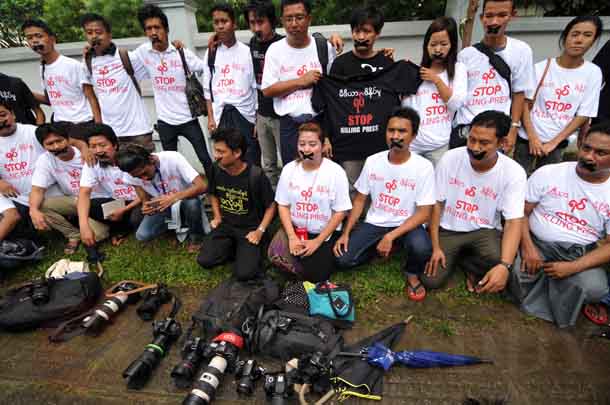 In a scarcely believable and punishingly harsh act of repression, four journalists and the CEO of Unity journal were sentenced by a Magwe Region court on 10 July to ten years imprisonment with hard labor for reporting on a story on a chemical weapons factory, giving a damming indictment of press freedom in Burma today. This occurred just days after President Thein Sein described Burma as “one of the freest in Southeast Asia” due to media reforms.
In a scarcely believable and punishingly harsh act of repression, four journalists and the CEO of Unity journal were sentenced by a Magwe Region court on 10 July to ten years imprisonment with hard labor for reporting on a story on a chemical weapons factory, giving a damming indictment of press freedom in Burma today. This occurred just days after President Thein Sein described Burma as “one of the freest in Southeast Asia” due to media reforms.
In January 2014, Unity journal published an investigative report on a chemical weapons factory in Magwe Region, central Burma, with accounts from factory workers, local villagers and photos of the site. While the Burma government eventually admitted it is a ‘standard ordnance factory’ that produces ordinary military equipment, an analysis of the images by the Center for Nonproliferation Studies concludes that there is strong evidence that this isn’t just a normal arms factory, and is consistent with chemical weapons factories in other places, such as North Korea. It is ironic that the journalists who published a story on chemical weapons are jailed for ten years under the State Secrets Act, while the Burma government denies it is making chemical weapons. Related to this, a point that has been overlooked slightly over the past week is that Burma must implement the measures of the Chemical Weapons Convention that it signed in 1993 and thus clear up the issue of whether Burma does have the capability to manufacture such equipment, as the Unity journalists reported and are now in prison for. […]
• • •Burma Must Find a Path to a More Tolerant Society
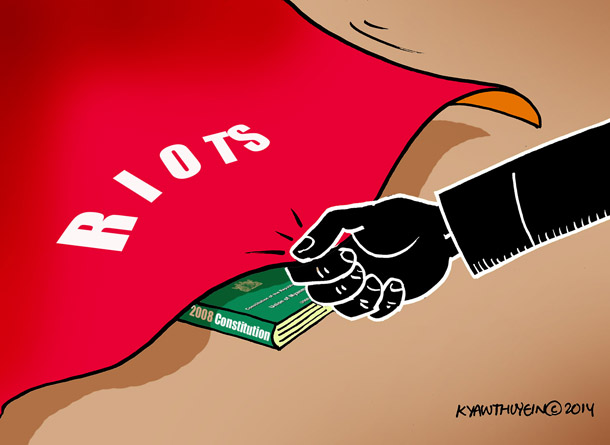 The streets of Mandalay, which just recently drew over 20,000 people in support of National League for Democracy and 88 Generation Peace and Open Society’s joint campaign to amend Section 436 of the Constitution in support of democratic reform, remain deserted this last week as many business owners closed their shutters in fear, following serious unrest in the city. In the second largest city in Burma, violent mobs took over the streets, leaving two people dead and dozens injured. Some stated that over “70 police were here but did nothing,” as Buddhist mobs torched a school in a Muslim area. Ironically the international community has mostly stayed silent in the wake of the recent events when their actions are needed to protect the people of Burma, especially the most vulnerable communities, more than ever.
The streets of Mandalay, which just recently drew over 20,000 people in support of National League for Democracy and 88 Generation Peace and Open Society’s joint campaign to amend Section 436 of the Constitution in support of democratic reform, remain deserted this last week as many business owners closed their shutters in fear, following serious unrest in the city. In the second largest city in Burma, violent mobs took over the streets, leaving two people dead and dozens injured. Some stated that over “70 police were here but did nothing,” as Buddhist mobs torched a school in a Muslim area. Ironically the international community has mostly stayed silent in the wake of the recent events when their actions are needed to protect the people of Burma, especially the most vulnerable communities, more than ever.
The series of events began on 1 July, just hours after the extremist Buddhist monk, and leader of the anti-Muslim 969 movement, Wirathu, picked up a questionable post from the social media site Facebook that highlighted an alleged rape of a Buddhist woman committed by two Muslim brothers. According to David Mathieson, a senior researcher for Human Rights Watch, Wirathu, who is based in Mandalay, appeared to have played “a pivotal role” in inciting the unrest, fanning tensions by spreading accusations with religious inferences, while calling for action against the two Muslim brothers who own a teashop in the same area where his monastery is located […]
• • •Now is the Time to Act, Sexual Violence Must End in Burma
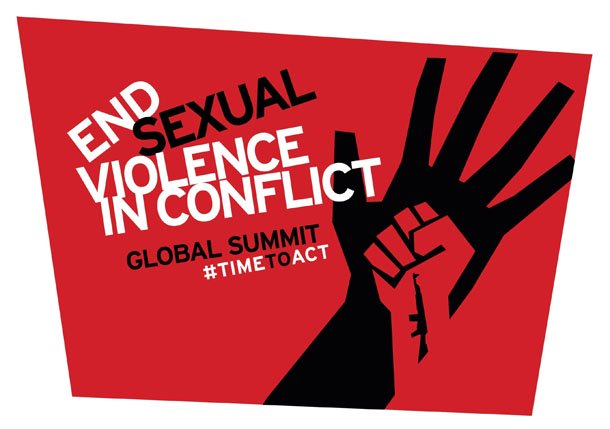 On 10 June 2014, the Burma government prepared to sign the ‘Declaration of Commitment to End Sexual Violence in Conflict’ at the end of a three-day global summit, which aimed to “shatter the culture of impunity for sexual violence in conflict.” On the same day, a woman was brutally beaten by a Burma Army soldier during an attempted rape in Rezua, Chin State. The eyewitnesses who spoke to the Chin Human Rights Organization said that the women was held down by the soldier, while he repeatedly beat her. She was rushed to the hospital and is fortunately now in recovery.
On 10 June 2014, the Burma government prepared to sign the ‘Declaration of Commitment to End Sexual Violence in Conflict’ at the end of a three-day global summit, which aimed to “shatter the culture of impunity for sexual violence in conflict.” On the same day, a woman was brutally beaten by a Burma Army soldier during an attempted rape in Rezua, Chin State. The eyewitnesses who spoke to the Chin Human Rights Organization said that the women was held down by the soldier, while he repeatedly beat her. She was rushed to the hospital and is fortunately now in recovery.
However, this brutal event has lead to a series of demonstrations in Rezua and Matupi, Chin State this week, calling for an end to sexual violence. According to The Irrawaddy, protesters held placards that stated: “Stop raping; We are humans, not animals. We are humans, not property.” Though the organizers requested to hold the rally, the local police denied their applications and they have been arrested for staging a peaceful demonstration without permission, ironically under the Peaceful Assembly and Peaceful Procession Law.
This recent case of attempted rape is not a one-off incident of a rogue Burma Army soldier. A report produced by Women’s League of Burma (WLB) ‘Same Patterns, Same Impunity’ demonstrates how the sexual violence inflicted by the Burma Army soldiers are systematic in nature and a part of a wider structural system of politicizing women’s bodies and abusing them as instruments of war and oppression. The data collected by WLB and its members found that since the 2010 elections, over 100 cases of rape has been documented, of which 47 were brutal gang rapes and victims were as young as eight years old. Most of the documented cases were linked to Kachin and Northern Shan State where military offensives have been taking place since 2011, indicating that rape and sexual violence is in fact, used as a weapon in an attempt to demoralize the ethnic communities and to assert dominance over them […]
• • •World Refugee Day is a Timely Reminder that the Rights of Refugees Must Be Respected
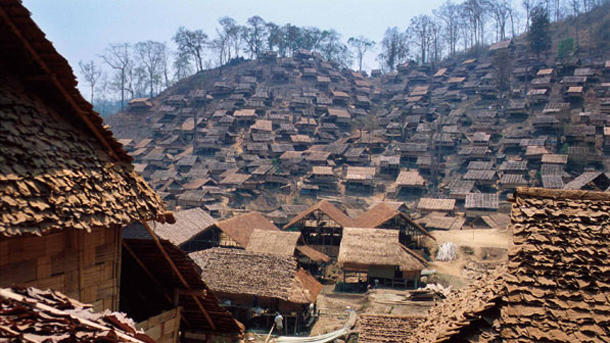 The Royal Thai Army’s Internal Security Operations Command (ISOC) last week requested, at short notice, to meet with representatives of the UN High Commissioner for Refugees (UNHCR) and local NGOs to discuss how refugees from Burma currently living in various camps along the Thai-Burma border can be repatriated in the near future. It is notable, however, that while regional military commanders were present at these meetings, no representatives from the refugee camps themselves or from community-based organizations (CBOs) assisting them were invited. The obvious and disturbing implication is that a decision on the status of refugees inside Thailand is likely to be made in the very near future with minimal consultation with affected parties. Moreover, the timing is not just premature and ill-considered, it is bitterly ironic given that last Friday, 20 June, was #WorldRefugeeDay.
The Royal Thai Army’s Internal Security Operations Command (ISOC) last week requested, at short notice, to meet with representatives of the UN High Commissioner for Refugees (UNHCR) and local NGOs to discuss how refugees from Burma currently living in various camps along the Thai-Burma border can be repatriated in the near future. It is notable, however, that while regional military commanders were present at these meetings, no representatives from the refugee camps themselves or from community-based organizations (CBOs) assisting them were invited. The obvious and disturbing implication is that a decision on the status of refugees inside Thailand is likely to be made in the very near future with minimal consultation with affected parties. Moreover, the timing is not just premature and ill-considered, it is bitterly ironic given that last Friday, 20 June, was #WorldRefugeeDay.
We call upon all parties to respect the UN 1951 Convention and 1967 Protocol Relating to the Status of Refugees, which represents international law as regards the rights of refugees, and is at the very least morally persuasive if not legally binding on the parties concerned. We also call upon all parties to include representatives of the refugee camps and of CBOs in any future meetings on the status of refugees or their potential repatriation. Furthermore, we urge all parties to ensure that repatriation of refugees only takes place when circumstances are appropriate, it is genuinely safe to return, all refugees’ rights are guaranteed by the Burma government, and that, most importantly, such repatriation is completely voluntary[…]
• • •Three Years of Suffering for the Kachin People, How Much Longer?
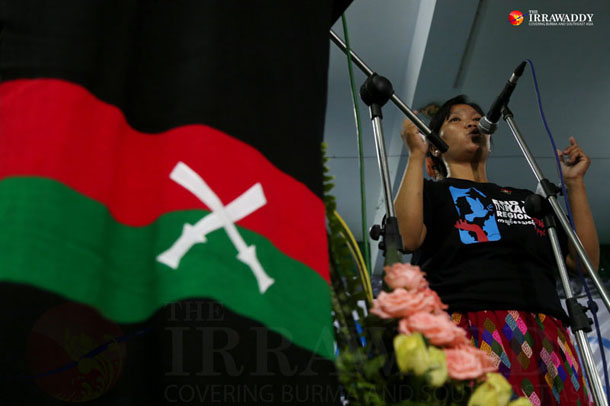 As we pass the marking of the third year of the conflict in Kachin and northern Shan State between the Kachin Independence Army (KIA) and the Burma Army, it is difficult not feel pessimistic. A report released by Fortify Rights, a non-profit human rights organization based in Southeast Asia, highlights the continuing torture of Kachin civilians by Burmese security forces, while Kachin Women’s Association Thailand (KWAT) expressed their concern at the increasing offensives on KIA positions. Peace talks have occurred sporadically in an attempt to resolves the conflict, but still, all we see is the continuing persecution of Kachin communities.
As we pass the marking of the third year of the conflict in Kachin and northern Shan State between the Kachin Independence Army (KIA) and the Burma Army, it is difficult not feel pessimistic. A report released by Fortify Rights, a non-profit human rights organization based in Southeast Asia, highlights the continuing torture of Kachin civilians by Burmese security forces, while Kachin Women’s Association Thailand (KWAT) expressed their concern at the increasing offensives on KIA positions. Peace talks have occurred sporadically in an attempt to resolves the conflict, but still, all we see is the continuing persecution of Kachin communities.
The Fortify Rights report, ‘Myanmar: End Wartime Torture in Kachin State and Northern Shan State’ demonstrates how torture, both physical and mental, has been systemically inflicted upon Kachin civilians thought to be associated with the KIA. Fortify Rights believes that this constitutes war crimes and crimes against humanity. The perpetrators include not just the Burma Army, but also military intelligence and the police force. Beatings during interrogation, cutting off blood circulation, deprivation of food, drink, and sleep, sexual assault, and stabbings among other methods were all documented. Mental torture was also used, such as forcing prisoners to dig graves and telling them it is their own, having to drink from pools of their own blood and being put in execution style positions. This report comes just a few months after the Women’s League of Burma released, ‘Same Patterns, Same Impunity’ that exposes the systematic use of rape and sexual assault as a weapon of war by the Burma Army in ethnic areas […]
• • •Burma Must Amend the 2008 Constitution for the Reform to be Genuinely Democratic
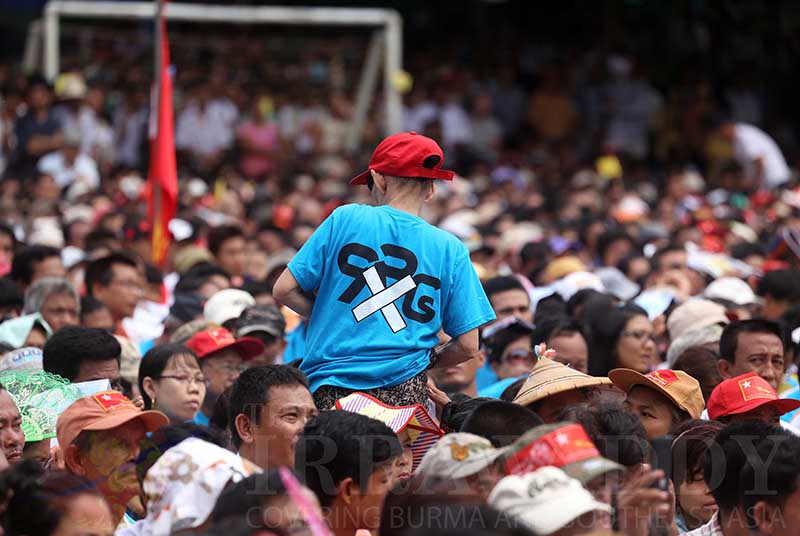 The National League for Democracy (NLD) and its leader Daw Aung San Suu Kyi, have faced intimidation from Burma’s electoral commission in recent weeks as the campaign to amend Burma’s 2008 Constitution continues to draw strong support throughout the country. As the public rallies behind the campaign, Burma’s ruling Union Solidarity and Development Party (USDP) have accused the campaign leaders of sowing public unrest and disorder.
The National League for Democracy (NLD) and its leader Daw Aung San Suu Kyi, have faced intimidation from Burma’s electoral commission in recent weeks as the campaign to amend Burma’s 2008 Constitution continues to draw strong support throughout the country. As the public rallies behind the campaign, Burma’s ruling Union Solidarity and Development Party (USDP) have accused the campaign leaders of sowing public unrest and disorder.
Last month, Daw Aung San Suu Kyi spoke to a crowd of over 20,000 supporters in Mandalay, calling on the military to forgo their fear of constitutional amendment in support of democratic reform. According to a recent statement from Human Rights Watch, the Union Electoral Commission (UEC) subsequently warned the NLD leader that such comments are illegal and unconstitutional, and could jeopardize her party’s re-registration ahead of by-elections in 2014. The NLD has responded to the UEC’s warning as inappropriate, owing to the fact that political parties are allowed to stage rallies so long as they are in accordance with the law.
• • •Burma Parliament Must Reject Dangerous Religious Conversion Law
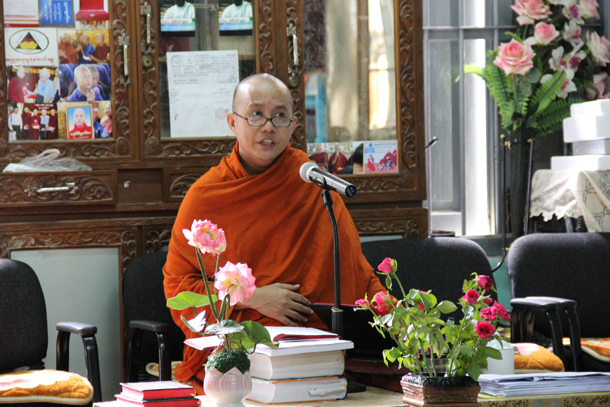 The introduction of the draft Law on Religious Conversions (the Law) – published in full in Burmese in state media on 27 May 2014, for the consideration of Parliament and the public – has justifiably triggered a torrent of criticism over the past few days, at national, regional and international levels. Human Rights Watch has urged the Burma Parliament to drop the Law, while the Asian Human Rights Commission has called for “the strongest opposition to the Law, both in the public domain and in the legislature.”
The introduction of the draft Law on Religious Conversions (the Law) – published in full in Burmese in state media on 27 May 2014, for the consideration of Parliament and the public – has justifiably triggered a torrent of criticism over the past few days, at national, regional and international levels. Human Rights Watch has urged the Burma Parliament to drop the Law, while the Asian Human Rights Commission has called for “the strongest opposition to the Law, both in the public domain and in the legislature.”
Part of a package of four bills which comprise measures to “protect race and religion,” the Law is the product of a very powerful lobby in contemporary Burma, namely a coalition of Buddhist monks known as the “Organization for the Protection of Race, Religion and Belief” (the OPRRB), which has been petitioning President Thein Sein and the Burma Government to address the simmering issue of race and religion since religious and communal tensions first broke out in Arakan State almost exactly two years ago. One of the leaders of the OPRRB, Tilawka Biwuntha, told Radio Free Asia that his organization were pleased with the introduction of the Law.
• • •Another Great year for Burma’s Drug Trade
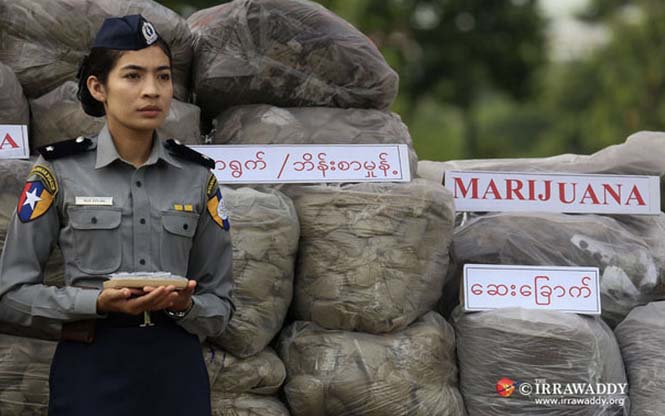 It is of no surprise that the latest report from the UN’s Office for Drugs and Crime (UNODC) on synthetic drugs finds that methamphetamine production in Burma continues to rise. Burma is already the second highest producer of opium in the world after Afghanistan and the fact that production rates of both opium and methamphetamine are increasing year on year points to a more complex picture than simply increase in demand. Poverty, displacement, conflict, and government complicity are all factors in this miserable state of affairs.
It is of no surprise that the latest report from the UN’s Office for Drugs and Crime (UNODC) on synthetic drugs finds that methamphetamine production in Burma continues to rise. Burma is already the second highest producer of opium in the world after Afghanistan and the fact that production rates of both opium and methamphetamine are increasing year on year points to a more complex picture than simply increase in demand. Poverty, displacement, conflict, and government complicity are all factors in this miserable state of affairs.
According to the UNODC report, “2014 Global Synthetic Drugs Assessment – Amphetamine-type Stimulants and New Psychoactive Substances,” that was released in Tokyo, Japan on 20 May 2014, seizures of methamphetamine in Asia have tripled over the past five years. The report highlights how most of the methamphetamine seized in Thailand, Bangladesh, and Burma itself, originates in Burma, while Jason Eligh, country manager for UNODC Burma states that, “according to expert perception, a large share of methamphetamine pills seized in China in 2012 originated from Myanmar.” This report complements a UNODC report on opium production in Burma released six months ago that showed a 26% increase from the year before, the highest recorded levels since monitoring began in 2002 […]
• • •Burma’s Top Priority Must Be Constitutional Reform for All
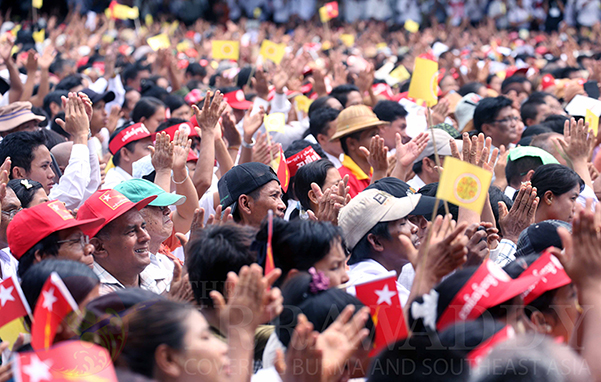 The NLD and 88 Generation Peace and Open Society have been campaigning actively and vociferously for various amendments to the military-drafted 2008 Constitution. Over the weekend, thousands of supporters came out in support of mass rallies for constitutional reform held in Rangoon and Mandalay on Saturday and Sunday, respectively. It is the first time that the two pro-democracy parties have co-hosted an event […]
The NLD and 88 Generation Peace and Open Society have been campaigning actively and vociferously for various amendments to the military-drafted 2008 Constitution. Over the weekend, thousands of supporters came out in support of mass rallies for constitutional reform held in Rangoon and Mandalay on Saturday and Sunday, respectively. It is the first time that the two pro-democracy parties have co-hosted an event […]









 All posts
All posts